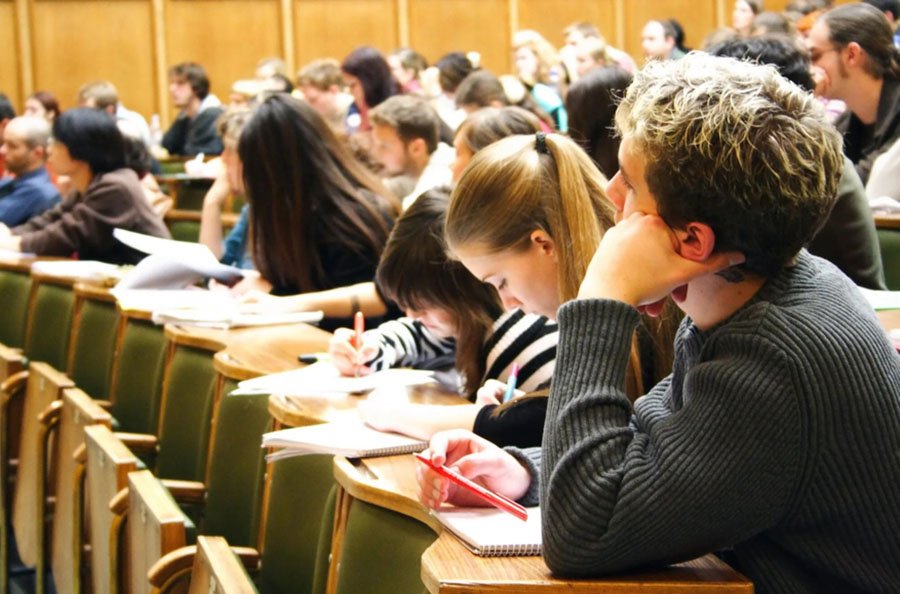Europe Restricts Access to Education for Students from Russia

In several European countries, students from Russia have been barred from studying in IT-related fields, even though education is not formally subject to EU sanctions. The most notable restrictions were introduced at the University of Bonn, where 65 people from Russia, as well as students from Iran and China, lost access to courses in cybersecurity, cryptography, and IT security.
German restrictions
In Germany, the decision was explained by federal government requirements. The university is obliged to comply with dual-use technology control rules, and entire blocks of disciplines fall under these regulations. Students were directly informed that certain modules are unavailable, but they have the right to choose alternatives. The Communication Management program was completely closed, and students were advised either to change their specialization or transfer to another university.
The main problem arose with laboratory work — the equivalent of coursework completed under a professor’s supervision. Students in general programs can redistribute modules and earn the required credits. However, for those who specifically enrolled in cybersecurity and cryptography, the ban became a serious blow: parts of the program became practically inaccessible. The university’s letters noted that restrictions may be lifted for those who have lived in Germany for more than five years or do not plan to return to Russia.
Norway and Austria: admission refusals
Norway’s UNIS (University Centre in Svalbard) refused to admit a Russian citizen to an Arctic studies course due to her citizenship, citing sanctions. University representatives claim the course requires visits to government facilities, and therefore the decision is justified — although in reality the course program does not require such visits.
It was also stated that the university does not admit “citizens of non-NATO countries” — despite the fact that Svalbard, where the institution is located, is a demilitarized zone, and under the treaty signed by Russia as well, equal treatment of citizens of all signatory states is guaranteed.
In spring, the outlet Port reported that in Austria, a Russian applicant was denied admission to a technical university, with administrators citing sanctions that do not actually exist. Her case concerned an attempt to apply to UAS Technikum Wien — one of the country’s largest universities in technology, digitalization, engineering, and industrial research.
Instead of a standard acknowledgment of her application or a request for additional information, the university sent a message stating that it “cannot review” her candidacy “due to legislation.” Attached was a link to the European Commission’s interactive sanctions map. The admissions office added a brief note: “Please pay attention to the information at the bottom.”
In the section on Russia, the map indeed lists economic measures, personal sanctions, and restrictions for companies. But no EU sanction prohibits the admission of Russian citizens to European universities. Port’s human rights experts point out that even EU Council documents relating to export controls mention no bans on education.
Technikum Wien, which prides itself on training engineers, IT specialists, and entrepreneurs, effectively blocked the application based on a justification that does not exist in legal texts.
Czech rules
In the Czech Republic, students from Russia and Belarus often face document-related issues, writes Novaya-Europa. For example, extending a residence permit can take up to half a year instead of several weeks due to thorough security checks. Some universities refuse to issue enrollment certificates required for visa or permit extensions — this depends entirely on the administration’s personal interpretation of restrictions, says Olga Buzenkova of the movement “Russians in the Czech Republic for Democracy.” Several students were forced to leave the country because of this.
The Ministry of Education of the Czech Republic instructed universities back in 2022 to deny Russians admission to programs related to aviation, biotechnology, engineering, energy, information and communication technologies, physics, chemistry and biology, as well as electrical engineering, nuclear disciplines, and many others. Those already studying in these faculties are recommended to be transferred to related fields.
Russians and Belarusians often receive admission refusals. The most controversial case concerns the Czech University of Life Sciences (ČZU), which — unlike other institutions — did not cite Ministry instructions and simply annulled entrance exams for more than 100 applicants from Russia and Belarus.
Students continuing their studies in Czech universities found themselves effectively placed in a separate category — with distinct procedures for internships and final theses. However, attitudes vary depending on the university and individual faculty members.
There is no official ban
Human rights defender Gera Ugryumova sent a request to the European Parliament in September 2025, asking whether there is any legal basis for such actions. The response stated that there is no ban on education or internships for Russian citizens, and visa restrictions do not apply to students. Nevertheless, restrictions exist in many European countries, including Switzerland, where each university makes its own decisions.
Meanwhile, lectures and educational materials remain open. Students can attend classes, participate, and use university resources — but are not allowed to officially register for exams or receive credits. Sociologist Dmitry Dubrovsky calls this overcompliance and “an overstretched interpretation of technology transfer”: open materials are not classified knowledge, and teaching them does not violate any rules.
Подсказки: Russia, Europe, education, students, universities, IT, sanctions, admissions, restrictions








